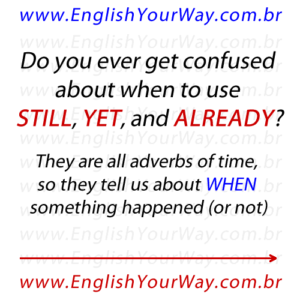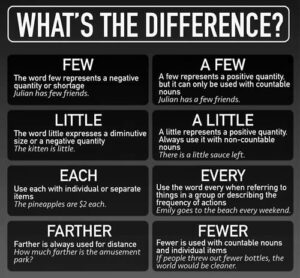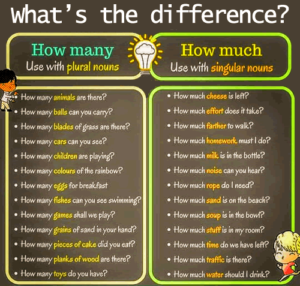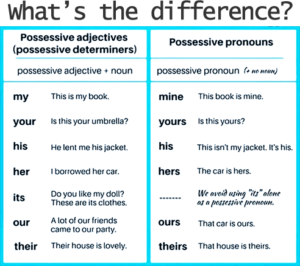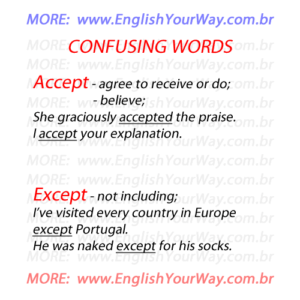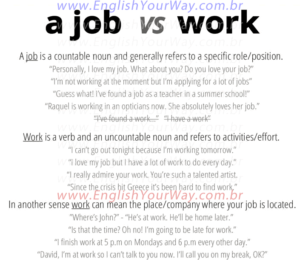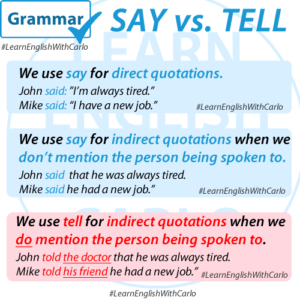“Still,” “yet,” and “already” are commonly used adverbs in English that can sometimes be confusing. They help indicate time and the progression of events, but each has its own specific use and nuance. This guide will explain the differences between these three words, complete with definitions and examples to clarify their correct usage. STILL Definition: …
Category: CONFUSING WORDS
Permanent link to this article: https://englishyourway.com.br/grammar-still-vs-yes-vs-already/
Permanent link to this article: https://englishyourway.com.br/whats-the-difference-work-vs-job/
Permanent link to this article: https://englishyourway.com.br/grammar-adjectives-that-quantify/
Jun 25
GRAMMAR – How Much vs. How Many
When we want to know the quantity or amount of something, we use HOW MUCH or HOW MANY. Key Differences: Remembering this distinction will help you use “how much” and “how many” correctly in questions and statements based on whether the noun is countable or uncountable. If you have any questions or doubts, please ask …
Permanent link to this article: https://englishyourway.com.br/difference-between-how-much-and-how-many/
Jun 20
Possessive Adjectives vs. Possessive Pronouns
It’s easy to confuse these two sets of words because they are very similar but perform different functions. Possessive Adjectives Definition: Possessive adjectives are words that modify nouns to show possession or ownership. List of Possessive Adjectives: Examples: Usage: Possessive Pronouns Definition: Possessive pronouns are words that replace nouns to indicate ownership or possession directly. …
Permanent link to this article: https://englishyourway.com.br/difference-between-possessive-adjectives-and-possessive-pronouns/
Jun 18
CONFUSING WORDS – Accept vs. Except
“Accept” and “except” are two commonly confused words in English due to their similar pronunciation, but they have different meanings and uses. Accept Definition: To receive or agree to something willingly. Part of Speech: Verb Examples: Usage: Use “accept” when talking about agreeing to take something that is offered or recognizing something as true. Except …
Permanent link to this article: https://englishyourway.com.br/accept-vs-except/
May 22
A Job vs. Work
Permanent link to this article: https://englishyourway.com.br/a-job-vs-work/
May 22
CONFUSING WORDS: Wait vs. Await
Today, let’s learn the difference between “wait” and “await”. Both words are about staying in a place until something happens, but they are used differently. Here’s a simple guide: Wait Await Key Points to Remember: Practice Try these sentences: Answers: I hope this helps you understand the difference between “wait” and “await”. Keep practicing, and …
Permanent link to this article: https://englishyourway.com.br/confusing-words-await-vs-wait/
May 20
In spite of vs. Despite
“In spite of” and “despite” are very similar in meaning and usage, and both are used to show contrast or opposition to what is expected. Basic Meaning Both “in spite of” and “despite” mean that something happens even though there is something that might prevent it. They are used to express a contrast between two …
Permanent link to this article: https://englishyourway.com.br/in-spite-of-vs-despite/
May 14
CONFUSING WORDS: Say vs. Tell
SAY and TELL have similar meanings. They both mean to communicate verbally with someone. But we often use them differently. The best way to remember say and tell is: SAY is immediately followed by a noun clause (He said (that) he was right) or, if it is followed by a personal object, we include the …
Permanent link to this article: https://englishyourway.com.br/confusing-words-say-vs-tell/

